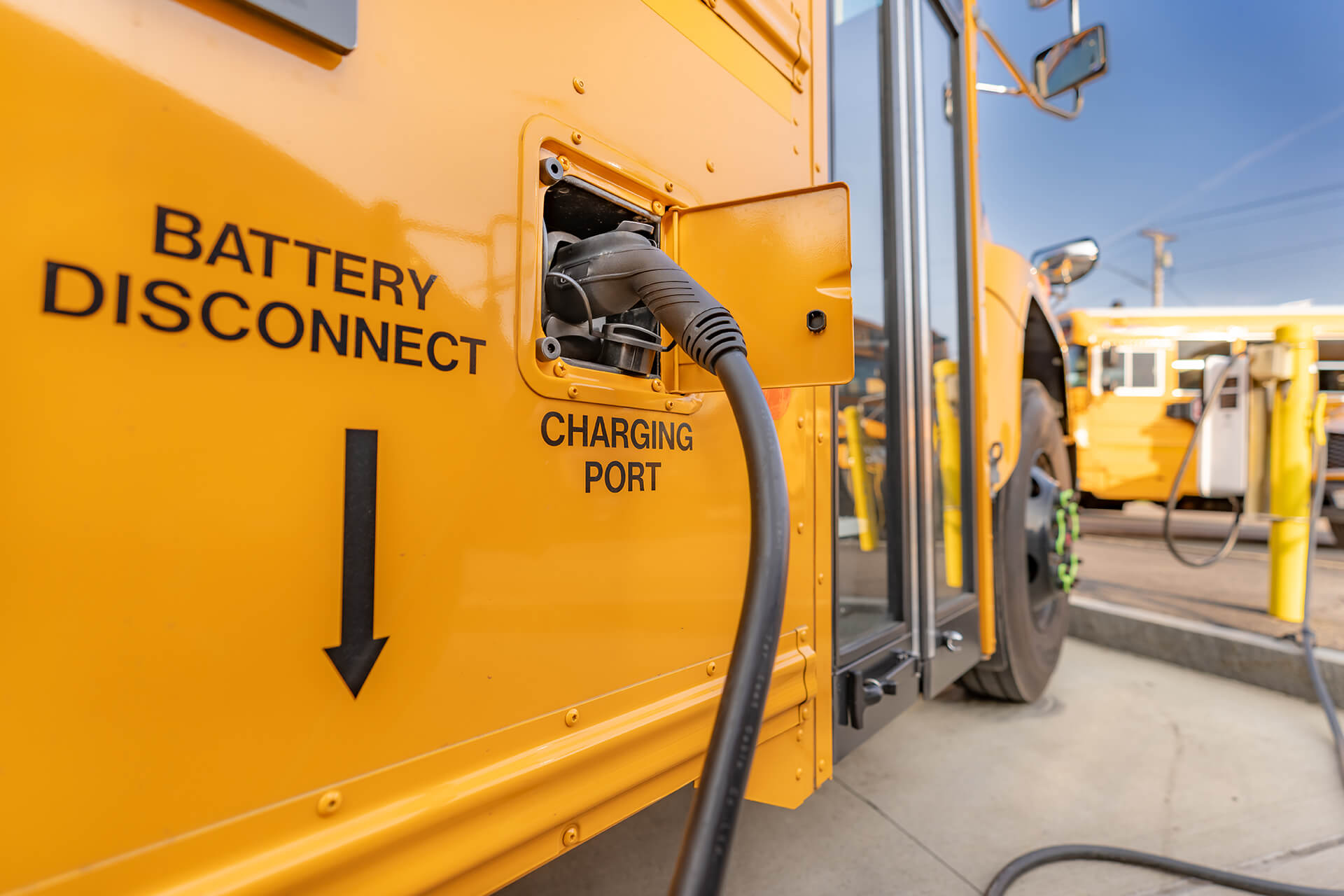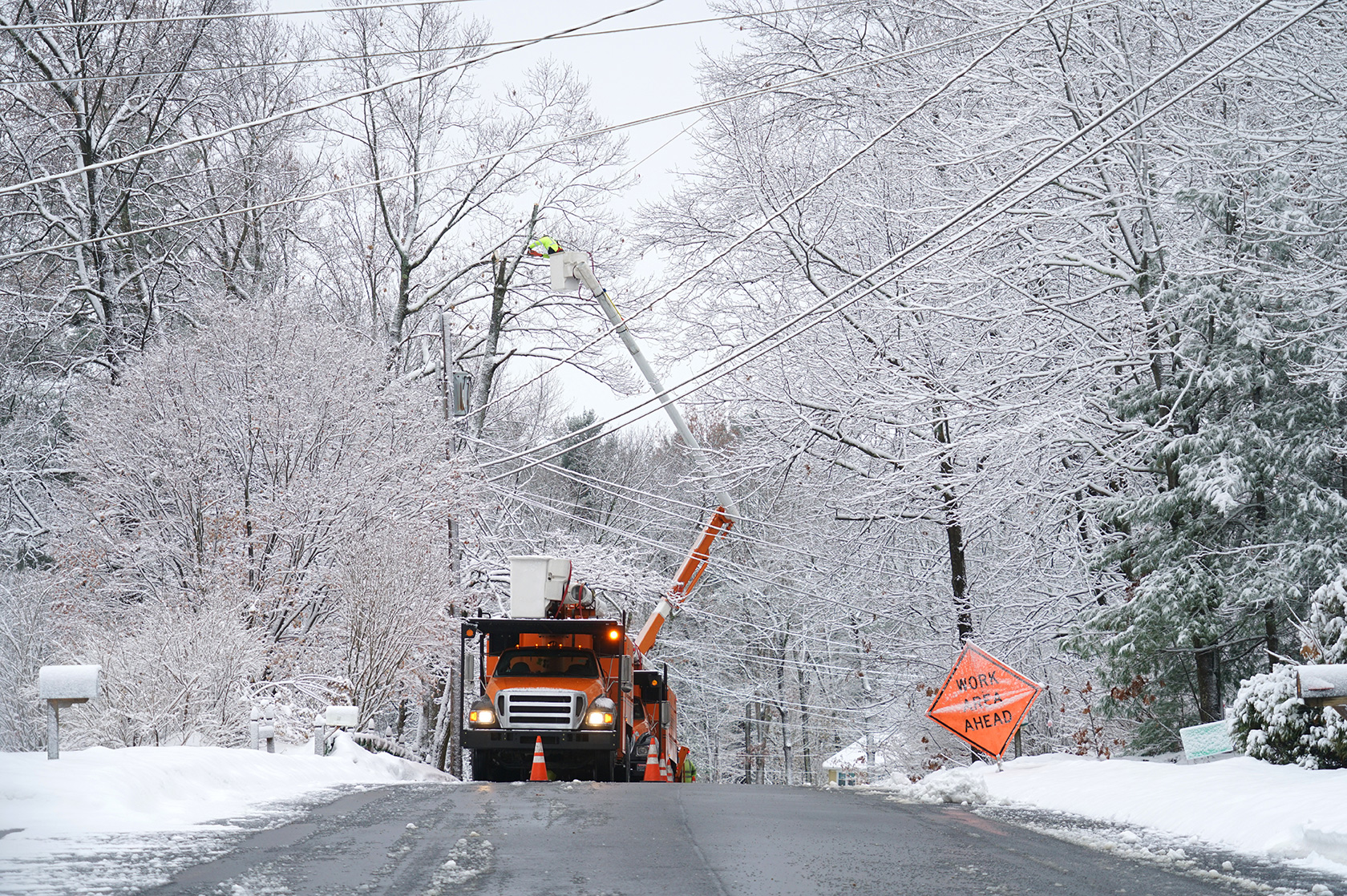The Pontiac School District is set to roll out a new fleet of 40 electric school buses this fall. The buses were purchased through Clean School Bus Program (CSBP) grants funded by the Biden-Harris administration’s landmark infrastructure law.
The CSBP aims to replace older, diesel-powered school buses with zero-emission models. This has several benefits:
- Reducing harmful pollutants and improving air quality around schools
- Lower maintenance costs compared to diesel buses, as they have fewer moving parts, and they do not require oil changes.
- Significant savings in operating the buses means more money for other educational needs.
“Being able to provide a better transportation experience to our students is paramount in our mission,” said Kelley Williams, superintendent for Pontiac school district. “By creating zero emissions, reducing the noise level of the bus, and providing a comfortable ride, our students should arrive at school happier and healthier, ready to engage in the learning environment.”
The new buses are equipped with advanced battery technology that allows for longer ranges and faster charging times. They will be charged at newly installed infrastructure within the district, which includes fast-charging stations capable of powering the buses overnight. This ensures that the buses are ready for their daily routes, providing reliable and efficient transportation for students.
According to the EPA, electric school buses offer numerous benefits over their diesel counterparts. They produce no tailpipe emissions, which significantly reduces the exposure of children to harmful pollutants linked to respiratory issues and other health problems.
“A single electric bus can eliminate 1,690 tons of CO2 over its lifespan, the equivalent of taking 27 cars off the road,” Michigan Chief Infrastructure Officer Zachary Kolodin said in a statement. Pontiac’s purchase of 40 new buses is the equivalent of taking nearly 1100 cars off the road.
The Pontiac School District’s initiative is part of Michigan’s broader clean energy plan, which includes investments in renewable energy and energy efficiency. The state has been actively working to reduce its carbon footprint and promote sustainable practices across various sectors, including transportation.
The buses could also play a role in serving communities after natural disasters. “These buses are basically generators on wheels, so if there is a catastrophic event we can roll them into a neighborhood and people can charge their phones or small medical devices on the bus,” said Bill Holcomb, a specialist in energy, technology and innovation for Pontiac schools. “It can help people in the community until the power comes back on.”
The district is currently working on finalizing the installation of the charging infrastructure and training drivers on the new technology – communities will start seeing these buses this fall. the start of the coming school year.
Learn more about the EPA’s Clean School Bus Program.
Three Key Facts:
- The Pontiac School District is introducing 40 electric school buses this fall, funded by Clean School Bus Program grants from the Biden-Harris administration’s infrastructure law.
- These electric buses reduce harmful pollutants, lower maintenance costs, and save operating expenses, providing a healthier and quieter transportation experience for students.
- The new buses feature advanced battery technology for longer ranges and fast charging, with infrastructure in place for overnight charging, and they can serve as mobile generators during natural disasters.





